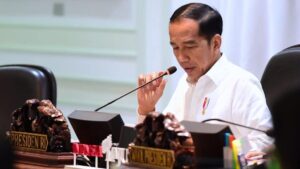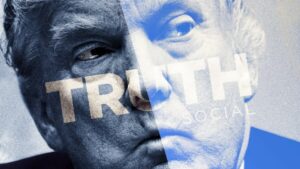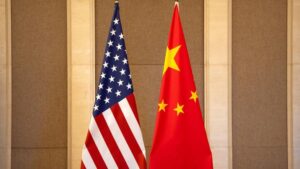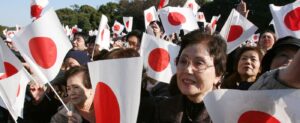China’s Gaming Democracy: A Study of Genshin Impact
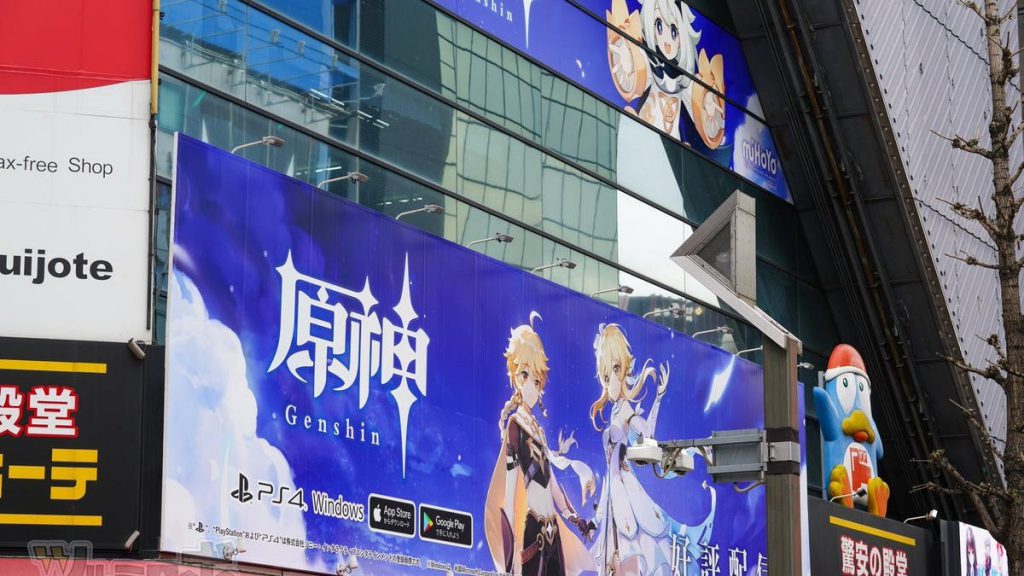
Illustration of Genshin Impact billboard. Photo: Kaztsu @ Twitter
As one of the most prominent players in the gaming sectors, Genshin Impact offers a variety of interesting gameplay and lore to be followed by its users. Incorporating those meticulously crafted elements onto a gacha system, it’s undeniable that MiHoYo as its developer has a significant amount of income. With the revenue of almost $800 million per-2020 (Huang, 2021), MiHoYo is a notable actor in China’s lucrative gaming industry. However, even with its status as a prominent private actor in China’s economy, strict regulation still binds MiHoYo. One of the most notable binds is the ban of some sensitive words, especially regarding the Tiananmen Square Massacre. The bind was shown during the anniversary of Tiananmen Square Massacre, in which none of Genshin Impact players was able to change their display name and signature in-game.
China’s Notorious Censorship
The Tiananmen Square Massacre phenomenon is not an outlandish tale for us, some International Relations scholar describes the respective phenomenon as a topic that can’t be studied. This is due to China’s assertive restriction regarding the topic. The role of the Beijing Communist Party Committee can be seen explicitly in the effort of the so-called Beijing’s Crisis Management. Divided into two contexts, generic and situational, China’s effort on managing it’s domestic crisis started in 1989, with the latter context talks about difference between domestic and international context (Liu, 1990). The effort lasts even until now. China’s notorious censorship also applies to prevent the growth of Tiananmen Square Massacre discourse online, including the gaming sector.
The Chinese government labeled games as “digital heroin” or “electronic heroin” (Holmes, 2021). The pinnacle of Chinese government’s effort to ban the gaming sector was made in 2000 when the Communist Party banned gaming consoles and arcade machines massively. Although the current condition is at ease—as the gaming sector isn’t fully restricted in China—since Xi Jinping took power in 2013, China’s government started to repress various discourses related to several human rights abuses, including the Tiananmen Square Massacre. This condition is marked by the heightened role of the National Press and Publication Administration, acting as the moral authority (Tsui, 2010).
Ever since several games crossed the anti-Beijing content and made some mockery towards Xi Jinping, for example the “Devotion” game which was released in 2019 by a Taiwan-based developer called Red Candle Games who mocked Xi Jinping by calling him “Winnie The Pooh” although the word itself had been banned on Chinese search engines and social media since 2017, there is a remarkable gesture made by China towards the gaming industry, specifically. This gesture could be seen in the Chinese government’s effort on suppressing the information escalated recently with the usage of a powerful voice and image recognition machine that learns to block and remove posts (Shu, 2019). This artificial-intelligence machine was first made to monitor the gaming industry in China, made to handle various types of contents, such as anti-Beijing content, mentioning or showing Chinese’s human rights abuses history, or even violence.
MiHoYo’s Hush-Hush Policy
Several players from all around the world complained about their account’s display name and signature ban starting from June 2nd 2021, 12:30 PM (UTC+8). There was no notice from MiHoYo, as if the game developer is turning their back on the current situation and pretends that no significant in-game change was made.
Several forums on MiHoYo’s community, HoYoLab, talked about this situation.
Even with those commotion, MiHoYo remained silent until June 7th of 2021, where some players stated the condition as a bug that has been ‘fixed’ (HoYoLab Forum, 2021). Several suspicions rotated inside the players’ forum, linking MiHoYo’s action towards China’s notorious censorship for the Tiananmen Square Massacre, as several words such as “Tank Man” and 261 other words related to the phenomenon are banned (Henochowicz, 2016). Some of the players’ accounts that violated the ban were restricted, showing that Mihoyo is restricting it’s community to talk about the Chinese’s government sensitive issue. Therefore, the term of MiHoYo Hush-Hush Policy emerges inside the community, acting as a silent acknowledgement that the game developer is just simply obeying the state’s rules of not talking or giving any platform to everyone around the world to speak about the Tiananmen Square Massacre for at least, in-game.
This is interesting to note because the ban doesn’t only apply to the Chinese citizens, it applies for everyone around the world that plays Genshin Impact. Chinese government can be seen as escalating it’s crisis management policy worldwide, forcing everyone that uses their service to obey the rules. We can notice that there is a fusion between domestic and international context, in which this is negating the generic context that China was initially using.
Will This Affect China’s Domination in the Gaming Sector?
China’s act of suppressing online’s discourse regarding the Tiananmen Square Massacre doesn’t only appear in Genshin Impact. Several games were also suppressed, for example, Call of Duty. Activision Blizzard as its developer was entangled in China’s strict policy over a second-long footage of the Tiananmen Square protests (Perez, 2020). This resulted in the deletion of the respective scene, which was replaced by a second-long black screen.
Quoting Peter Van Praagh, this condition reflects China’s poor ability to adapt with the world’s democracy, as their effort in this aspect doesn’t cooperate effectively with each other (Democracy Digest, 2020). Even with its position as one of the most lucrative gaming industries in the world, making China the dominant player in the gaming sector, the inability to adapt with current democracy norms could diminish China’s domination in the respective industry. I would argue that this condition would affect the country’s domination in the gaming sector, although not drastically. The implication of this action will just probably take a form that signals China quite an authoritarian country, even in the smallest aspect, such as gaming.
China Isn’t Alone
Although this writing aims to show how China’s censorship policy, specifically the ban of Tiananmen Square Massacre’s online discourse, it is important to note that China is not the only country that does extensive gaming censorship. Several countries also participated in halting various contents and information spread by using games as medium. For example, recently Sandiaga Uno, Indonesia’s Minister for Tourism and Creative Economy, specifically asked authorized agency to review Fortnite, citing the user-created map that enables the user to freely destroy a building that resembles Kaaba, a holy site of Islam which is the largest religion in the country (Partis, 2021).
Another example is the act of banning Wolfenstein by Germany in 2009, with the root-cause of the game having several Nazi contents that has to be altered or censored if the respective game wants to be distributed in Germany. The ban was lifted in 2019 following the 2018 change in policy that lifts the ban of Nazi symbols in video games (see BBC News, 2018).
The act of banning games because of various reasons is a common one, the main difference is each countries’ motives of doing so. Mostly, the act of banning comes from a normative and legal realm.
Conclusion
To conclude everything, we can note that MiHoYo is just simply following the Chinese government’s regulations in order to be able to operate smoothly. Noting that the Chinese’s government has strict regulations in managing online discourse, including the gaming sector, especially regarding various taboos such as the Tiananmen Square Massacre, we can notice that there is a vague concept of gaming democracy in China. In this case, gaming democracy is very normative as it has to adapt towards several policies that the Chinese government has made. In another country, for example Indonesia, the game-banning activities were made because of normative reasons, backed-up by various religious statements.
These several conditions sparked an interesting question for future discussion. Is there really a democracy in the gaming sector? Or does the gaming sector have to adapt with various norms that exist in several countries?
Is, once again, democracy a normative concept in the gaming industry?
REFERENCES
Allen, K. (2019, February 25) Taiwan Game ‘Devotion’ Upsets China with Winnie The Pooh Reference. Retrieved from BBC News:
https://www.bbc.com/news/world-asia-china-47361172.
BBC. (2018, August 10). Germany lifts total ban on Nazy symbols in video games. Retrieved from BBC: https://www.bbc.com/news/world-europe-45142651.
Change Signature and Nickname Issue. (2021, June 9). Retrieved from HoYoLab Forum: https://www.hoyolab.com/genshin/article/402520
Democracy Digest. (2020, November 17). China Vs. Democracy: The Greatest Game. Retrieved from Democracy Digest: https://www.demdigest.org/china-vs-democracy-the-greatest-game/
Henochowicz, A. (2016, June 1). Five Years of Sensitive Words on June Fourth. Retrieved from China Digital Times: https://chinadigitaltimes.net/2016/06/five-years-sensitive-words-june-fourth/
Holmes, O. (2021, July 15) No Cults, No Politics, No Ghouls: How China Censors The Video Game World. Retrieved from The Guardian: https://www.theguardian.com/news/2021/jul/15/china-video-game-censorship-tencent-netease-blizzard.
Huang, Z. (2021, February 23). Hit Game Genshin Impact Helps Chinese Studio Doubles Its Sales. Retrieved from Bloomberg: https://www.bloomberg.com/news/articles/2021-02-23/hit-game-genshin-impact-helps-chinese-studio-double-its-sales.
Liu, A. P. (1990, May). Aspects of Beijing’s Crisis Management: The Tiananmen Square Demonstration. Asian Survey, 30(5), 505-521.
Partis, D. (2021, July 7) Indonesia Minister Calls for Fortnite Ban Over User-Generated Content. Retrieved from GamesIndustry: https://www.gamesindustry.biz/articles/2021-07-07-indonesia-minister-calls-for-fortnite-ban-over-user-generated-content.
Perez, M. (2020, August 24). New Call of Duty Trailer Censored in China Over Tiananmen Square Footage. Retrieved from Forbes: https://www.forbes.com/sites/mattperez/2020/08/24/new-call-of-duty-trailer-censored-in-china-over-tiananmen-square-footage/?sh=316a607540af
Shu, C. (2019, June 3). A Look at the Many Ways China Suppresses Online Discourse About the Tiananmen Square Protests. Retrieved from TechChrunch: https://techcrunch.com/2019/06/03/a-look-at-the-many-ways-china-suppresses-online-discourse-about-the-tiananmen-square-protests
Tsui, Lokman. (2010). A Journalism of Hospitality (thesis). University of Pennsylvania, Pennsylvania.
Anthea Nissa Salsabila is an International Relations student in Universitas Indonesia. She can be found on Instagram @antheansb

